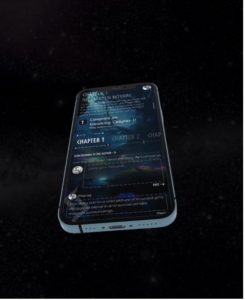Over the past year, the ascent of chat GPT and AI has sparked widespread debates across industries. The media sector, in particular, has shown keen interest in the potential outcomes that AI development can bring to the creation of news, scripts, and other content. However, reminiscent of the concerns raised during the writers’ strike, these considerations have not been without controversy. The lack of comprehensive legislation for AI control has raised worries among employees, who fear that programs driven by highly advanced algorithms might encroach beyond their intended roles, potentially impacting jobs. Fortunately, creators and platforms have started to come to agreements in terms of what AI could be used for.
At least when it comes to streaming platforms the issue, at least temporarily, seems to be settled. But how is AI adapting to the rest of the media landscape? There are other forms of entertainment where AI is sparking more debate. One of the most interesting aspects of this technology is its impact on fan-generated content and the overall experience for online users.
Let’s delve into the Wattpad scenario. Wattpad stands out as a pioneering platform where individuals can author and share their original novels with a global audience. In its early stages, the platform grappled with limited resources to scrutinize content quality, resulting in the proliferation of novels authored by teenagers marked by significant grammar and vocabulary challenges. However, within this environment, a collection of remarkably creative stories emerged, alongside individuals who elevated their writing pursuits to a professional vocation, securing a livelihood from their craft.
In tandem with Wattpad’s evolution came a more discerning approach to content curation. The platform implemented measures to highlight and filter narratives with superior literary merit. Through the creation of their own machine learning system, called Story DNA, the platform has become, faster in terms of selecting the better content. This initiative led to the emergence of Wattpad bestsellers, capturing the interest of streaming platforms in search of compelling content for their series and movies. Even Netflix has partnered with Wattpad for one of their major hits, “The Kissing Booth” series.
On the other hand, AI has made its way to platforms like Wattpad through user initiatives. Some enthusiasts are now crafting entirely AI-generated stories. Currently, these AI-authored novels are often disclosed as such, but this could pose challenges for Wattpad in the future. Detecting AI-generated stories without a dedicated AI software could prove difficult. In this context, it appears that Wattpad should hurry to implement completely AI on its display. Adding to the complexity is the emergence of competitors that could potentially challenge the platform, which currently boasts 96 million users globally. There is a fascinating initiative underway that may not be widely known as it is still in its developmental phase. Some entrepreneurs have taken inspiration from Wattpad and integrated it with AI, giving rise to a venture known as Kosmos.
Kosmos is positioned as a ‘self-publishing tool for creators seeking to fully engage their readers in unique story worlds.’ The platform aspires to be a more immersive tool for user-generated content by leveraging AI in the display of its app interface. Reportedly, the reader won’t be encountering the content on the traditional black background with white letters, as seen on platforms like Wattpad. Instead, Kosmos aims to create ambiance through the inclusion of images, perhaps music, and other features.

Nevertheless, it appears that it will be a while before Kosmos fully materializes its vision. According to their website, the platform is set to remain in the development phase until 2024, allowing room for other platforms to make strides in the meantime.The integration of AI into the entertainment landscape seems inevitable. As users become increasingly captivated by content created or enhanced by AI, traditional formats for presenting shows and novels on the internet may start to fall short in terms of appeal.
Wattpad serves as a notable example of how the AI tools already available to users can outpace platform capabilities. If platforms fail to respond promptly and incorporate AI, users might gravitate toward more immersive initiatives or projects. It is essential to recognize how every facet of the media landscape can uniquely integrate AI. Among other “accomplishments” that AI could help the industry, one could think of (1) journalists enhancing their ability to identify misinformation, (2) streaming platforms offering more personalized content, and (3) even social media platforms could eliminate toxic elements from their content. Some of these outcomes are already underway, while others are a work in progress. If you had the choice, what would you like to see AI accomplish in the media landscape first?

